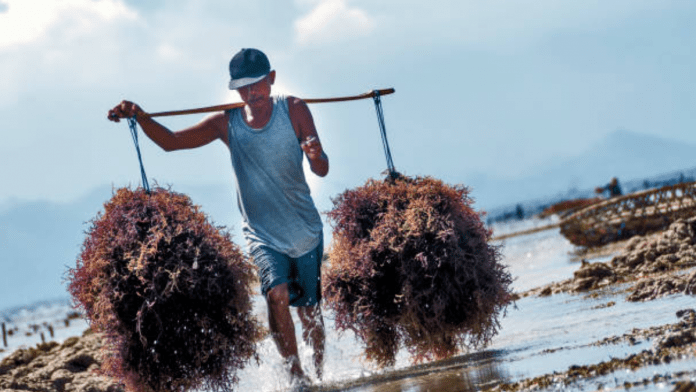News in brief:
– Asia dominates global seaweed production, contributing 97% of the 34.7 million tonnes produced worldwide.
– Seaweed demonstrates remarkable resilience, offering a potential solution to global catastrophes such as nuclear wars by providing a sustainable food and fuel source.
According to a report by the Food and Agriculture Organization (FAO), Asia has emerged as the powerhouse in global seaweed production, contributing a staggering 97% of the 34.7 million tonnes produced worldwide.
Beyond its culinary uses, seaweed plays a crucial role in sustaining livelihoods for impoverished coastal communities. A recent study highlights its remarkable ability to endure and flourish even in post-nuclear war environments, providing a lifeline for those in need.
Seaweed farms as a global famine safeguard in case of nuclear war
David Denkenberger, an associate professor of mechanical engineering, suggests that investing in seaweed farms could potentially prevent global famine in scenarios of abrupt sunlight reduction, saving countless lives from starvation. The research, published in Earth’s Future, and picked up by several news outlets, emphasises seaweed’s versatility as a resilient commodity.

In the face of a nuclear winter scenario, researchers from diverse institutions constructed a model based on the seaweed Gracilaria tikvahiae, demonstrating its ability to thrive even after widespread catastrophe. The study suggests that seaweed could provide a critical food and fuel source when traditional sources become scarce.
Despite potential sunlight reduction following a nuclear war, the study finds that seaweed’s ability to photosynthesize and grow remains intact. With optimal production and preparation, seaweed could meet 45% of global food demand within nine months, the researchers say.
Nutritional value and safety considerations for seaweed
Seaweeds, rich in proteins, minerals, vitamins, and essential amino acids, could be a vital addition to global food security. The findings added that post-harvest processing can mitigate concerns about contaminants, making seaweed a safe and nutritious option.
While seaweed offers hope in catastrophic scenarios, another study warns of dire consequences, including global cooling and marine life decimation, following nuclear wars. Environmental advocates emphasize the urgency of avoiding nuclear conflicts due to their far-reaching and irreversible impacts on the global climate.



